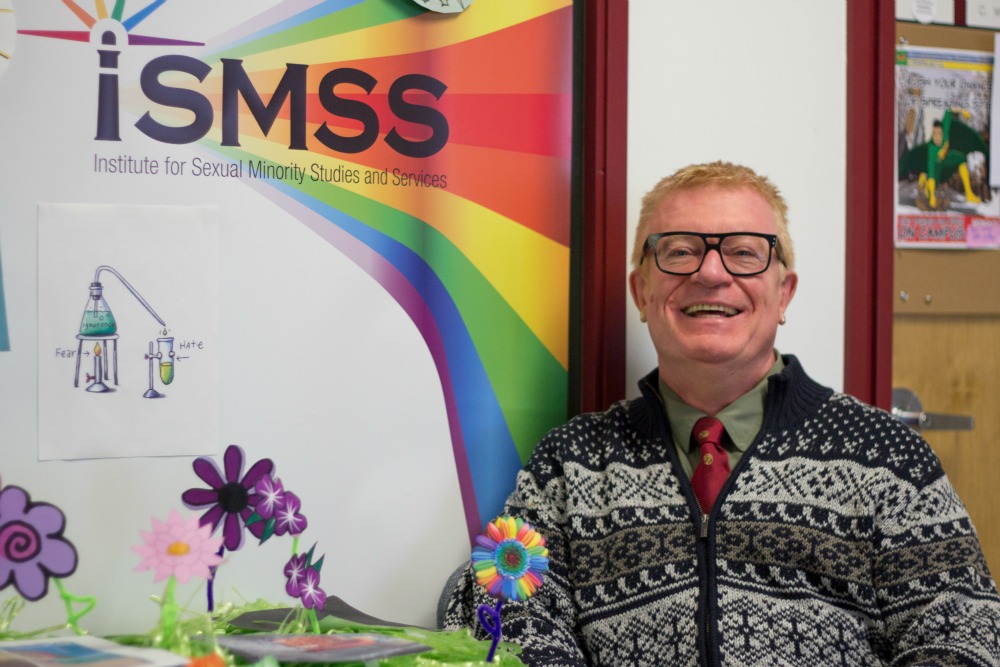As recently as a decade ago, research into resilience in sexual and gender minority youth tended to focus primarily on the adversity and trauma they endure. André P. Grace, professor in the Department of Educational Psychology and faculty director of the Institute for Sexual Minority Studies and Services (iSMSS), has devoted his research to shifting the focus to the strengths that help these youth grow into resilience—and to building communities of educators, health care providers, counsellors, and other caring professionals to help make it happen.
“I work with youth who have had difficult experiences, but they’re not just surviving, they’re thriving, to the point where they can engage in peer mentoring,” Grace says. “I want to figure out what it is about these youth that allows them to become agents, to become advocates for other youth, for them to become problem solvers.”
Grace has received a 2015 Social Sciences and Humanities Research Council (SSHRC) Insight grant to ensure the research that’s done at iSMSS informs policy making and practice to effectively support sexual and gender minority youth.
“I use that phrase ‘sexual and gender minority’ to cover the array of differences most people will think of as being lesbian, gay, bisexual, transgender, and queer that’s been common, but the list of letters is extending as we come to realize the complexities of sexuality and gender, and as more and more youth come forward to talk about their experiences,” Grace says.
He adds that his current work, based on previous SSHRC-supported research, is aimed at continuing to expand the queer critical theory around and understanding of sexual and gender minority youth in relation to other kinds of cultural and social differences.
“I’m not just focusing on this issue of sexual and gender identities as a separate piece anymore. I want to look at sexuality and gender in relation to Aboriginal youth, new immigrant youth, youth who are in intersections because of race and cultural identities. Class and poverty are also huge issues affecting the degree to which they are recognized and accommodated as sexual and gender minorities.”
Where research meets practice
Grace says iSMSS, which he helped found in 2008, represents an opportunity to integrate research and practice that’s unique among institutes of its kind.
“It’s very unusual for an institute like this one to be in a faculty of education. Generally they’re in faculties of arts, and when they do exist, they’re usually focusing on the intellectual side of sexual and gender minority research. We say the research is only as good as the degree to which we can use it to advocate for children and youth.”
iSMSS is also unique in extending its reach beyond campus to offer supports and services to sexual and gender minority youth and their families in the wider community.
“We have year-round programming for youth, support groups for families and for trans youth, counselling and supports for children and youth who are questioning their sexuality and gender,” Grace says.
“Once you create a space that recognizes and accommodates a group that’s been historically disenfranchised, they want that to extend out into the world, they want that same level of accommodation in schools, in social service agencies, in healthcare. All of a sudden there’s a courage to deal with that marginalization and invisibility.”
Team-building for resilience
Part of this work involves cultivating networks of caring professionals who have first-hand experience serving sexual and gender minority youth. As such, Grace invites workers in health care, social services, education, and other caring professions to volunteer at iSMSS and learn about the realities and needs of sexual and gender minority youth first-hand. The unifying impetus for Grace’s work is having a real-world impact.
“For me, it’s all about creating spaces where I learn things in my resilience research, I turn it into professional development for caring professionals, or I use the research to inform our youth outreach programming here at the institute,” Grace says. “And if I can use the research to influence policy making with school districts, teachers’ associations, or the healthcare system, that helps solidify the kinds of accommodations that children and youth and their families are getting beyond the institute.”
André P. Grace is the author of Growing into Resilience: Sexual and Gender Minority Youth in Canada (2015) with Kristofer Wells. Click for book details.
Feature Image: André P. Grace, professor of Educational Psychology and iSMSS faculty director, photographed in December 2015.
